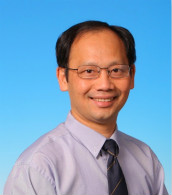
CMOS射频集成电路设计培训课程通知
上海林恩信息咨询有限公司、上海集成电路技术与产业促进中心(ICC)联合组织培训课程。届时,香港科技大学资深教授、COMS RFIC领域的权威Howard Cam LUONG教授将来上海讲授CMOS射频集成电路设计的培训课程。
承办方:上海林恩信息咨询有限公司
上海集成电路技术与产业促进中心(ICC)
一、课程对象:本课程属于射频集成电路设计高级课程,适合具有一定基础的学员:射频电路、无线通讯等设计人员、模拟/数模混合电路设计人员、、器件建模等相关领域的研究人员和管理人员、集成电路专业研究生以及对射频集成电路感兴趣的人。
二、举办时间及地点:
(一)上课时间:2014年11月07日-08日(周五-周六,2 天)
(二)上课地点:上海集成电路技术与产业促进中心(上海市张东路1388号科技领袖之都21幢1楼多功能厅)
三、其他事项:
(一)报名:
1、报名时间:2014 年9 月15 日至11 月02 日止;
2、报名方式:填写报名表格(附后),于11 月02日前将填好的报名表发送至联系人邮箱(附后)
(二)费用:
1、培训费用:3000元/人(两天,含授课、教材费、与教授合影照片以及午餐费),团体折扣
价:2 人3%(共¥5820);3 人5%(共¥8550);4 人8%(共¥11040);5 人以上协商。(如有参加过林恩咨询举办的任何一次培训课程的学员报名,则可再享受九折优惠)。针对在校学生我们优惠价格:2500元/人。
2、培训食宿:学员午餐由会务组统一安排,往返交通及住宿费用自理,需要住宿的学员会务组可以帮忙提前预定。
酒店信息:
①龙东商务酒店(协议价:488元/天起,提供免费早餐、网络);②和颐酒店张江店(协议价:377元/天起,提供免费早餐、网络);③锦江之星张江店(协议价:251元/天起,提供免费早餐、网络)。
3、相关费用请汇入会务组账号:
收款单位:上海林恩信息咨询有限公司
开户行:上海银行曹杨支行
账 号:316586 03000624127
(汇入账户的学员,请将汇款底单传真至021-3327 5892或者扫描邮件至会务组邮箱:steven.yu@lynneconsulting.com
(三)联系方式:
联系人:温丽琴,021-5109 6090,余小阳,021-5897 8665;
联系邮箱:余小阳:steven.yu@lynneconsulting.com
更多培训信息,请访问林恩咨询新浪官方微博:林恩咨询;或者加入林恩咨询微信公众号:lynnezixun。
(四)课程内容:
本课程属于CMOS射频集成电路设计课程,适合具有一定基础的学员:我们将有许多设计中的实际案例讨论,具体课程内容如下:
a) RF Fundaments and Transceiver Architecture:
1. Motivation
2. RF Fundamentals
3. Passive Components
4. Receiver Architecture
5. Transmitter Architecture
b) LNAs:
1. Functionality and Figures of Merits
2. Basic LNA Design:
i. Input Matching Network
ii. Noise and Linearity
iii. Output Loading and Output Matching Network
iv. Stability
v. Differential Design
3. Advanced LNA Design Techniques:
i. Variable gain
ii. Narrow-Band Design
iii. Wide-Band Design
iv. Reconfigurable Narrow-Band Design
v. Noise Cancellation
vi. Linearization
4. Case Study
c) Mixers:
1. Functionality and Figures of Merits
2. Basic Mixer Design:
i. Single-balance mixers
ii. Double-balance mixers
iii. Up-conversion mixers
3. Advanced Mixer Design Techniques:
i. Low-voltage mixer design
ii. Current-steering technique
iii. Linearization
iv. Switched-transconductance mixers
v. Image-rejection mixers
vi. Harmonic-rejection mixers
4. Case Study
d) Synthesizer Architecture:
1. PLL Fundamentals
2. Integer-N Synthesizer
3. Fractional-N Synthesizer
4. Dual-Loop Synthesizer
5. Single-Sideband-Mixer-Based Synthesizer for Fast Settling Time
6. All-Digital Synthesizer
7. Injection-Locked Synthesizer
e) VCOs:
1. Fundamentals and Figures of Merits
2. Phase Noise and Spur Specification
3. Basic VCO Design:
i. Ring VCOs
ii. LC VCOs
iii. Phase Noise Estimate
4. Advanced VCO Design Techniques:
i. Transformer-Feedback VCOs
ii. Quadrature VCOs
iii. Magnetic-Tuning VCOs
iv. Phase-Tuning VCOs
v. Multiple-band VCOs
vi. Mixer-Divider-Based Technique VCOs
f) Frequency Dividers:
1. Fundamentals and Figures of Merit
2. Digital Dividers:
i. Fixed Division
ii. Dual-Modulus Division Using Gating Approach
iii. Multiple-Modulus Division
iv. Phase-Shifting Technique
3. Analog Dividers:
i. Injected-Locked Dividers
ii. Regenerative Dividers (Miller Dividers)
iii. Advanced Divider Techniques
g) Power Amplifiers:
1. Fundamentals and Figures of Merit
2. Classical Design (Class A, B, C)
3. High-Efficiency Design (Class E, F)
4. Power Combining Techniques
5. Digital PA
h) Case Studies:
1. Synthesizers:
i. 1-V WLAN Synthesizer
ii. SDR Synthesizer (50MHz – 10GHz, 20GHz, 40GHz)
iii. Ultra-Wide-Band Point-To-Point Synthesizer (20GHz – 48GHz)
2. Transceivers:
i. 1-V WLAN Transceiver
ii. UWB Transceiver
备注:参会的学员可将与本课程相关、自己关注或急需解决的问题,在开课前15日内以书面提纲形式发邮件至会务组(请在注明主题“CMOS射频集成电路设计培训课程相关技术问题”),会务组将根据实际情况,对具有代表性的问题纳入讲课内容。
(五)教授简介:
Howard Cam LUONG教授简介:
 Prof. Howard Luong received his BS, MS, and PhD degrees in Electrical Engineering and Computer Sciences (EECS) from University of California at Berkeley in 1988, 1990, and 1994, respectively. Since September 1994, he has joined theEEE facultyat theHong Kong University of Science and Technologywhere he is a professor. In 2001, he spent his one‐year sabbatical leave to develop a new wireless product at Maxim Integrated Products, Inc., Sunnyvale, California, USA. From August 2013 to July 2014, he was a MediaTek Endowed Visiting Professor at Nanyang Technological University in Singapore.
Prof. Howard Luong received his BS, MS, and PhD degrees in Electrical Engineering and Computer Sciences (EECS) from University of California at Berkeley in 1988, 1990, and 1994, respectively. Since September 1994, he has joined theEEE facultyat theHong Kong University of Science and Technologywhere he is a professor. In 2001, he spent his one‐year sabbatical leave to develop a new wireless product at Maxim Integrated Products, Inc., Sunnyvale, California, USA. From August 2013 to July 2014, he was a MediaTek Endowed Visiting Professor at Nanyang Technological University in Singapore.
Professor Luong’s research interests are in analog, RF, and mm-Wave integrated circuits and systems for wireless and portable applications. He was a co-author of the two books entitled "Low-Voltage RF CMOS Frequency Synthesizers" published by Cambridge University Press in August 2004 and "Design of Low-Voltage CMOS Switched-Opamp Switched-Capacitor Systems" published by Kluwer Academic Publishers in July 2003.
Professor Luong is an IEEE Fellow. He is currently serving as an IEEE Solid-State Circuits Society Distinguished Lecturer, an Associate Editor for IEEE Virtual Journal on RFIC, a Guest Editor for Journal of Emerging Technologies on Circuits and Systems (JETCAS), and a technical program committee member of many international conferences, including IEEE Custom Integrated Circuits Conference (CICC), and IEEE International Symposium on Radio-Frequency Integration Technology (RFIT).
Professor Luong was an Associate Editor for IEEE Transactions on Circuits and Systems I and II (TCAS-I and II) from 2010 to 2012 and from 1999 to 2002, respectively, as well as a Guest Editor for the 2012 T-MTT Special Issue of RFIT papers and for the 2011 and 2012 TCAS Special Issues of CICC papers. He also served as a Technical Program Co-Chair of the 2011 IEEE International Symposium on Radio-Frequency Integration Technology (RFIT) and a Technical Program Co-Chair of the 2008 IEEE Asian Pacific Conference on Circuits and Systems (APCCAS).
附件:详细通知及报名回执表下载:
附件2:报名回执表

